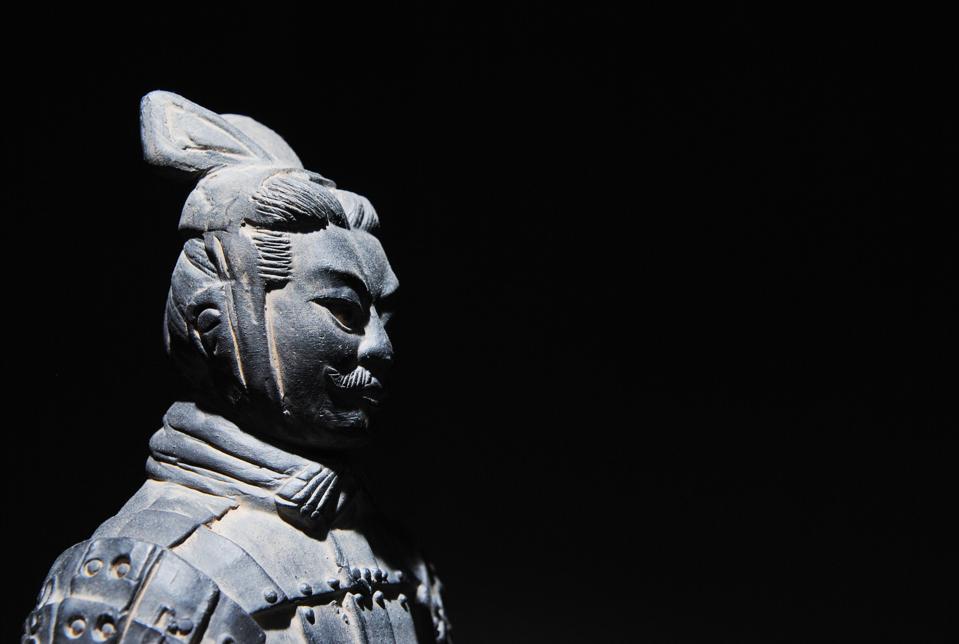Marcus Aurelius, Roman emperor from the year 161 until his death in 180 A.D., is remembered not only as a wise and just ruler, but also as one of the most prominent Stoic philosophers in history.
His reign was marked by military challenges, political crises, and social tensions, but his focus on reason, virtue, and justice made him a model of leadership and negotiation. This article explores in depth the negotiation system of Marcus Aurelius, analyzing its philosophical foundations, practical strategies, and legacy in the art of mediation and conflict resolution.
The Historical and Philosophical Context:
Marcus Aurelius ruled the Roman Empire during a period of relative stability, known as the Pax Romana, but he also faced significant challenges, such as the Marcomannic Wars on the Danubian front and a plague that devastated the Empire. In this context, his philosophical training in Stoicism played a crucial role in his approach to governance and negotiation.
Stoicism, a philosophical school that emphasizes control of emotions, acceptance of fate, and the pursuit of virtue, provided Marcus Aurelius with an ethical and practical framework for decision-making and conflict resolution. His work Meditations, written as a personal journal, is a testament to how he applied these principles in his life and governance.
The Foundations of Marcus Aurelius’ Negotiation System:
Marcus Aurelius’ negotiation system was based on several key Stoic principles, which guided his approach to conflict and interpersonal relationships. These foundational principles include:
A.Reason as a Guide:
For Marcus Aurelius, reason was the most powerful tool for resolving conflicts. He believed that through rational thinking, it was possible to understand others’ perspectives and find fair and balanced solutions. This approach led him to avoid impulsive decisions and to carefully consider the consequences of his actions.
B.Virtue as a Goal:
Virtue, understood as the practice of wisdom, justice, courage, and moderation, was the central goal of his negotiation system. Marcus Aurelius believed that any agreement or decision should align with these values, even if that meant sacrificing short-term personal or political gains.
C.Acceptance of Fate:
Stoicism teaches that some things are beyond our control and that we must accept them with serenity. This principle helped Marcus Aurelius remain calm in times of crisis and to focus on what he could control: his own actions and decisions.
Empathy and Understanding:
Although Stoicism emphasizes control over emotions, Marcus Aurelius also valued empathy and understanding toward others. In his Meditations, he wrote: “What is not good for the hive cannot be good for the bee.” This idea reflects his belief in interdependence and the need to consider the common good in any negotiation.
Marcus Aurelius’ Negotiation Strategies:
Marcus Aurelius’ negotiation system was not limited to abstract principles, but translated into practical strategies that he applied in his governance and personal relationships. These strategies included:
Always Dialogue and Mediation:
Marcus Aurelius preferred dialogue and mediation over imposition and force. He believed that through open and honest communication, it was possible to resolve conflicts peacefully and fairly. This approach was evident in his dealings with the Roman Senate, with whom he maintained a relationship of mutual respect despite political tensions.
Balancing Firmness and Flexibility:
Although Marcus Aurelius valued flexibility and adaptability, he also understood the importance of firmness in defending fundamental principles. This balance allowed him to negotiate with military, political, and diplomatic leaders without compromising his Stoic values.
A Focus on the Common Good:
In all his negotiations, Marcus Aurelius prioritized the common good over individual or partisan interests. This approach earned him the respect of his contemporaries and contributed to the stability of the empire during his reign.
Use of Moral Persuasion:
Marcus Aurelius was a master of moral persuasion. He used arguments based on reason and virtue to convince others of the validity of his proposals, rather than resorting to coercion or manipulation.
Practical Applications of Marcus Aurelius’ Negotiation System:
Relations with the Senate:
Unlike some of his predecessors, Marcus Aurelius maintained a relationship of cooperation and respect with the Senate. Although he had the power to rule autocratically, he preferred to consult the Senate and seek consensus, which strengthened the legitimacy of his government.
Management of Military Crises:
During the Marcomannic Wars, Marcus Aurelius demonstrated his skill in negotiating with military leaders and barbarian tribes. Although he did not hesitate to use force when necessary, he also sought diplomatic solutions to avoid prolonged conflicts.
Resolution of Social Conflicts:
Marcus Aurelius faced several social crises, including the Antonine Plague and economic tensions. In these situations, his Stoic approach led him to implement policies aimed at alleviating the suffering of the population and maintaining the stability of the empire.
Legacy and Contemporary Relevance:
Marcus Aurelius’ negotiation system remains relevant in today’s world. His focus on reason, virtue, and the common good offers valuable lessons for leaders and negotiators in times of crisis and conflict. Moreover, his emphasis on empathy and understanding highlights the importance of considering others’ perspectives in any negotiation process.
In an increasingly polarized and complex world, the example of Marcus Aurelius reminds us that true negotiation is not about imposing solutions, but about building consensus based on shared values. His legacy as both a philosopher and a ruler continues to inspire those who seek to lead with wisdom and justice.
The negotiation system of Marcus Aurelius, grounded in the principles of Stoicism, is a testament to the power of reason, virtue, and empathy in conflict resolution. Through his balanced and common-good-centered approach, Marcus Aurelius not only governed an empire during times of crisis, but also left a lasting legacy in the art of negotiation. His example invites us to reflect on how we can apply these principles in our own lives and in the pursuit of fair and sustainable solutions to the challenges we face today.






0 Comments